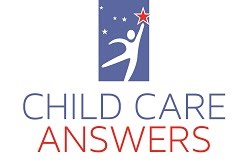Eating the proper foods will help ensure your kids success throughout the day!
On The Early Show Thursday, contributor and registered dietician Keri Glassman explained the ABCs of eating smart to fuel the mind as well as the body.
BREAKFAST
Studies show children who start their day with a healthy breakfast do better academically and have fewer behavior problems.
If a child doesn't eat breakfast, he or she may become tired, irritable, restless, and fail to focus on academics or behave appropriately.
A study done at Tuft's University reinforced the belief that breakfast improves children's academic performance. The researchers divided the children into two groups. One group was fed instant oatmeal (a complex carbohydrate containing fiber and protein), and the other dry, readymade cereal (lower in fiber, higher in sugar). The results showed kids fed the oatmeal did better on special and short-term memory tests, as well as auditory attention tests.
Whole grains and protein are digested more slowly, providing a sustained source of energy. Blood sugar remains stable. Foods made of refined sugars (such as fruit-flavored characters, packaged cookies, white bread, etc.) set kids up for a sugar high (rush), followed by a crash.
Breakfast foods for the brain:
•Oatmeal (for instance, Uncle Sam's fortified with flax) made with skim milk and topped with raspberries, which are a great source of antioxidants, specifically Vitamin C, and have been shown to improve cognitive function and protect the brain.
•Scrambled fortified eggs with one ounce of cheese rolled up in a whole wheat tortilla: Choline in eggs boosts memory and concentration, and eggs are a great source of protein. Omega 3s provide an added brain boost!
•French Toast (soak one slice of whole grain bread in one scrambled, fortified egg, add chopped walnuts and cinnamon. Walnuts contain those Omega 3's, and cinnamon helps stabilize blood sugar levels.
LUNCH
A well-balanced lunch is key to keeping a child's energy up and blood sugar stable. A high fat, high sugar lunch (which can often be found in school cafeterias) will lead to an afternoon crash. Depending on what's offered at your child's school, you may want to consider packing a nutritious lunch!
Lunch Foods for the brain:
•Turkey/hummus wrap: Smear hummus on a whole grain tortilla, layer with two-to-four slices of turkey, wrap and serve with sliced red peppers. Have a side of Breyers DHA-fortified yogurt. Turkey has the amino acid tyrosine, which is related to the production of specific neuro-transmitters, which aid alertness and energy. Red peppers are a great source of antioxidants, specifically Vitamin C, have been shown to improve cognitive function, and are brain-protective.
•Peanut butter/banana sandwich: Spread peanut butter over a slice of whole grain bread. Add one cup of strawberries and a cup skim milk.
•Salmon salad on a whole grain English muffin: Prep salmon as you would tuna, OR use plain yogurt for a calcium and protein boost!
DINNER
This offers another great chance to incorporate brain foods! Aim for half the plate to be green/colorful veggies, a-quarter whole grains, and a quarter lean protein.
•Turkey burger platter: Turkey burger with tomato slices, sautéed spinach in olive oil, and wild rice. Iron is important for energy and concentration, zinc for memory. Vitamin C helps iron absorption.
•Meatballs and spaghetti: lean meat meatballs, fortified pasta such as Ronzoni or Barilla Plus with Omega 3's, marinara sauce, steamed broccoli.
•Pork Tenderloin: roasted pork tenderloin, roasted asparagus, quinoa
SNACKS
•Apple slices dipped in peanut butter or almond butter
•Yogurt Sundae: DHA-fortified yogurt layered with Go Lean Crunch Honey Almond Flax, berries, and walnuts
•DHA/Omega-3s: important for brain development and function. DHA is found in gray brain matter, brain cell membranes, and is important for brain cell communication
•Trail Mix: Puffins cereal mixed with dried cranberries and almonds
http://www.cbsnews.com/stories/2008/08/14/earlyshow/health/main4350193.shtml
5 years ago









No comments:
Post a Comment